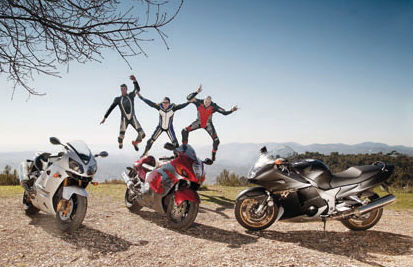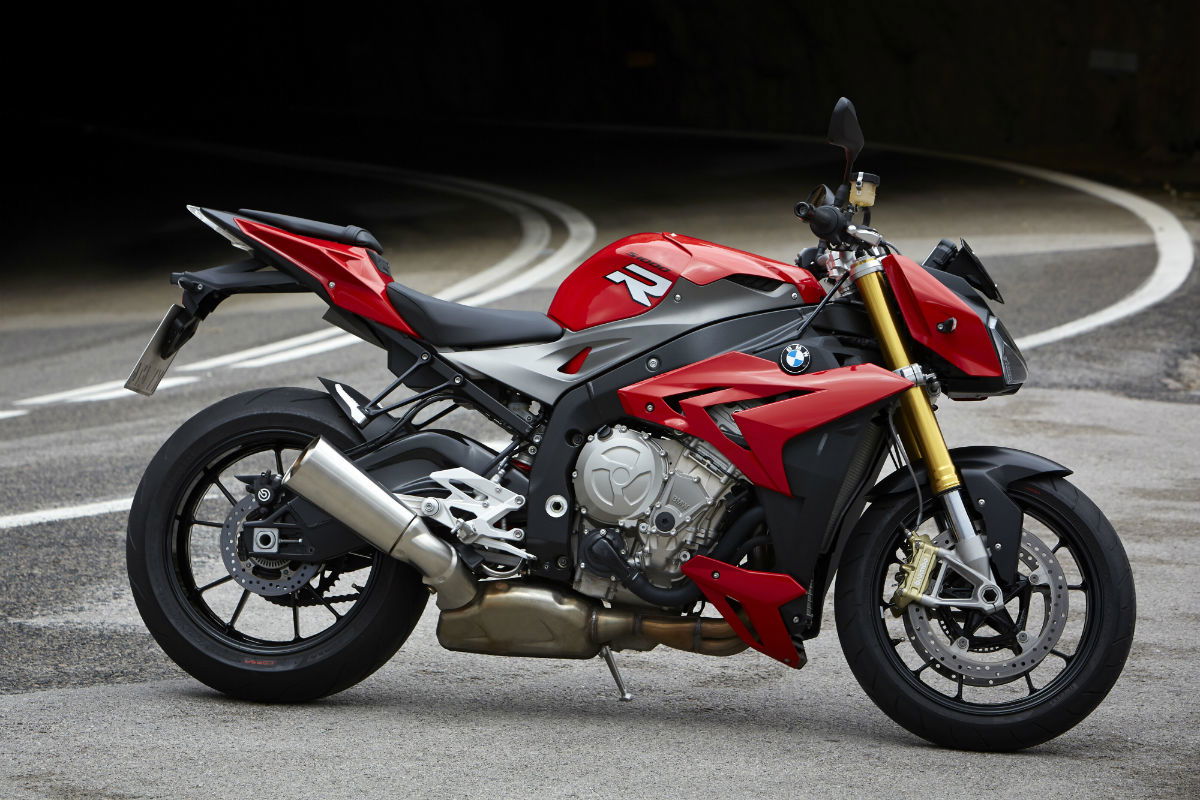Discuss: Bikes need more power
With production motorcycles making close to 200bhp, the top-speed war that once raged between manufacturers is long dead. Visordown's industry expert, who can't be named in his own interest, thinks it needs reviving.


Bikes need more power. There. I’ve said it. Not because we need it – the proliferation of traction control systems show that even everyday machines are already achieving more power than grip – but because motorcycling as a whole would benefit from a race between manufacturers to achieve even higher levels of performance.
From my point of view, this is a change of heart. For years I’ve preached the theory that the ideal motorcycle would be a 100bhp, 100kg lightweight. That’s still an unattainable dream, and I’d still be fascinated by such a bike, but I’ve recently come to the realisation that the motorcycles on sale today are lacking something – they’ve stopped trying to out-do each other.
Some will no doubt say that it’s because the industry has ‘grown up’ and realised that chasing ever more power, or ever higher top speeds, is a pointless exercise. And of course it is, absolutely. But that line of thinking is wrong-headed. Follow it to the logical conclusion and you’ll eventually come to think that motorcycles themselves are pointless. We don’t ride them because there’s a ‘point’ to it. It’s about fun. Passion. Interest. For most, it’s a hobby – something that takes us away from the things in life that are ‘sensible’ or ‘grown up’ – and as such it’s crying out for more insanity, not less.
Have a look back at the second half of the 1990s, when the high-performance battle still raged. Between 1995 and 2005, the number of registered bikes on the road in the UK rose from around 700,000 to 1.2 million. But since 2005 the numbers have been static.
It was big bikes that drove the massive increase. In '95, there were around 85,000 bikes over 800cc on the road in the UK. By 2005 that was up to around 300,000. That’s a hell of a shift.
It was a decade that took us from Fireblades and steel-framed, carb-fed CBR600Fs into an explosion of more radical machines – race-rep 600s, near-200mph ‘hyperbikes’ (remember the Blackbird/Busa/ZX-12R wars of the late 90s?). Not to mention the birth of the 1000cc superbike as we know it today. The game changed beyond recognition. Every manufacturer raised its standards during that decade and reaped the rewards in terms of sales.
Perhaps it’s a reflection of my own immaturity during that period, but every barstool conversion about bikes I had seemed to be, effectively, an adult game of Top Trumps: “Have you seen how much power the [enter bike’s name] makes?” or: “They say the new XYZ1300RR-SP is going to do more than 200mph!”
Of course, none of the guys present for those awestruck conversations was actually in a position to buy any of those bikes, but there was a veneer of desirability that somehow, in our eyes at least, rubbed off on the skanky shitters that we actually did ride at the time.
Now it’s different, there’s a general disinterest in power and top speed simply because all the fastest bikes are pretty much on a par with one another in those terms. About 180bhp. About 186mph. Every now and then we’re teased with headlines about a forthcoming machine that might make 200bhp, but it inevitably doesn’t when the it’s put under the unforgiving eye of the dyno. It’s like manufacturers are scared of really making a 200bhp bike in case there’s adverse publicity from it. The technology certainly exists, and surely – even though we don’t need more power from a riders’ point of view – there would be buyers wanting to experience it?
Then there’s that top speed ‘gentlemen’s agreement’ that ended the Busa-vs-Blackbird-vs-ZX-12R battle by imposing a 300km/h speed limiter on all the world’s fastest bikes. It eliminated a huge talking point – and for why? Is it somehow safer to crash at an electronically-limited 186mph than at a true 201mph? Or is it a means of avoiding the need to develop tyres and other components that can cope?
By pandering to the fact that average riders don’t need (or even necessarily want) more power and performance from their bikes, the firms that make them have taken away a talking point. So pub conversations turn to other things instead. And with that, bikes drop from the forefront of our minds.
To re-ignite the battle for top speed or peak power wouldn’t solve all of motorcycling’s problems but it could inject a fresh layer of interest, as well as sparking technical developments that might filter down to more real-world machines as well. The current technological battleground, that of electronics, ABS and traction control, might be making leaps and bounds in terms of safety but it doesn’t ignite passion. And without passion, what’s the point?
So, over to you. Is there an alternative to a power and speed battle that could spark as much debate and excitement as we experienced back in the second half of the 90s?

